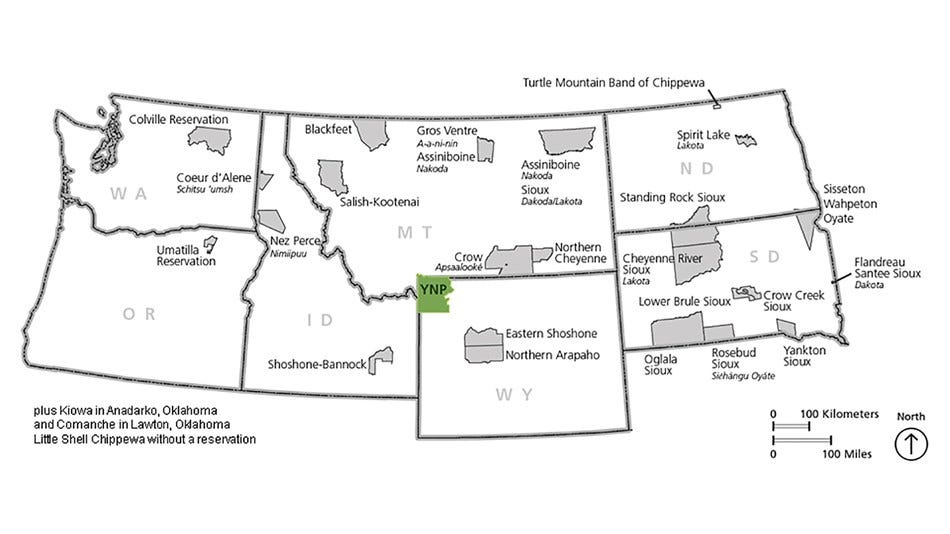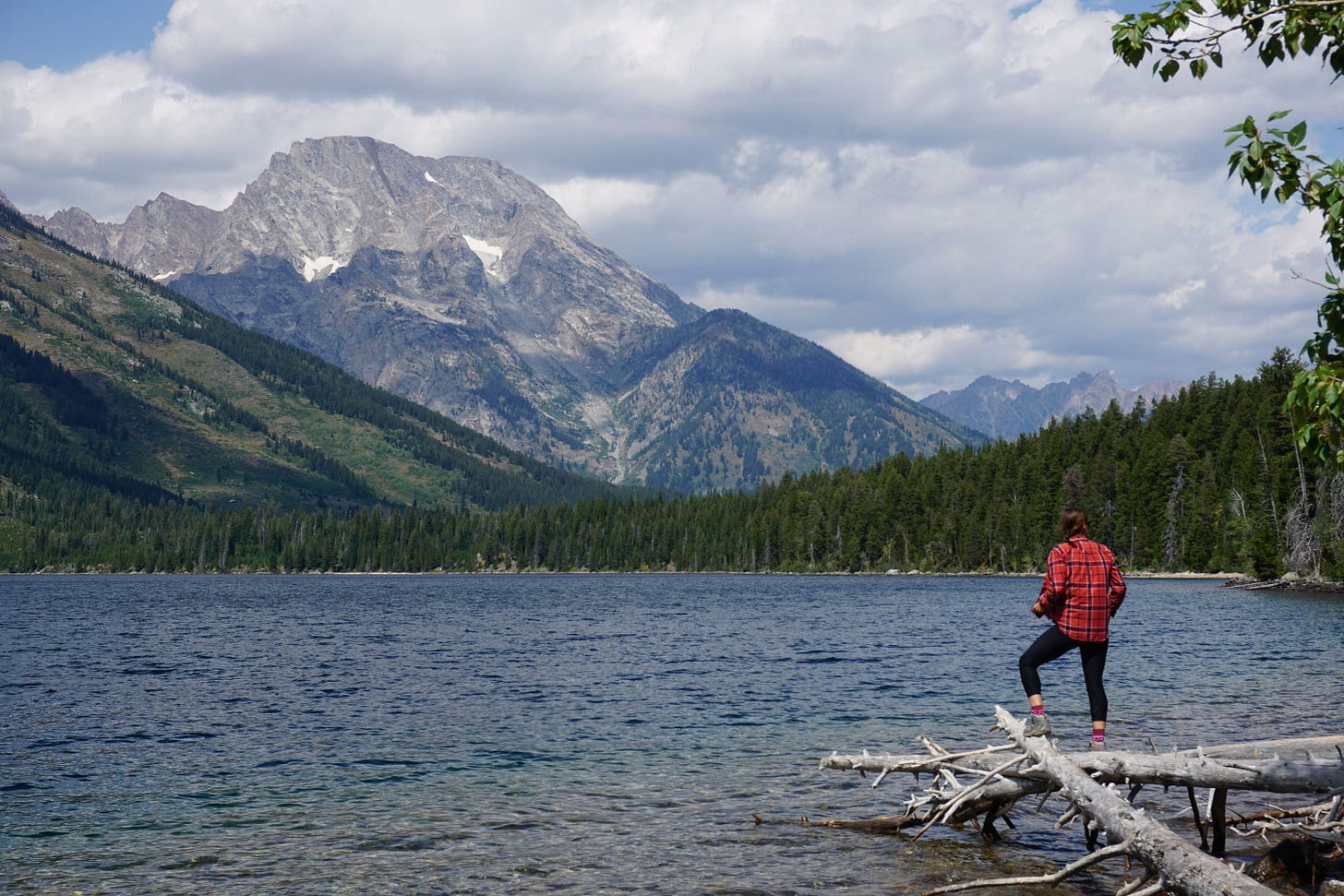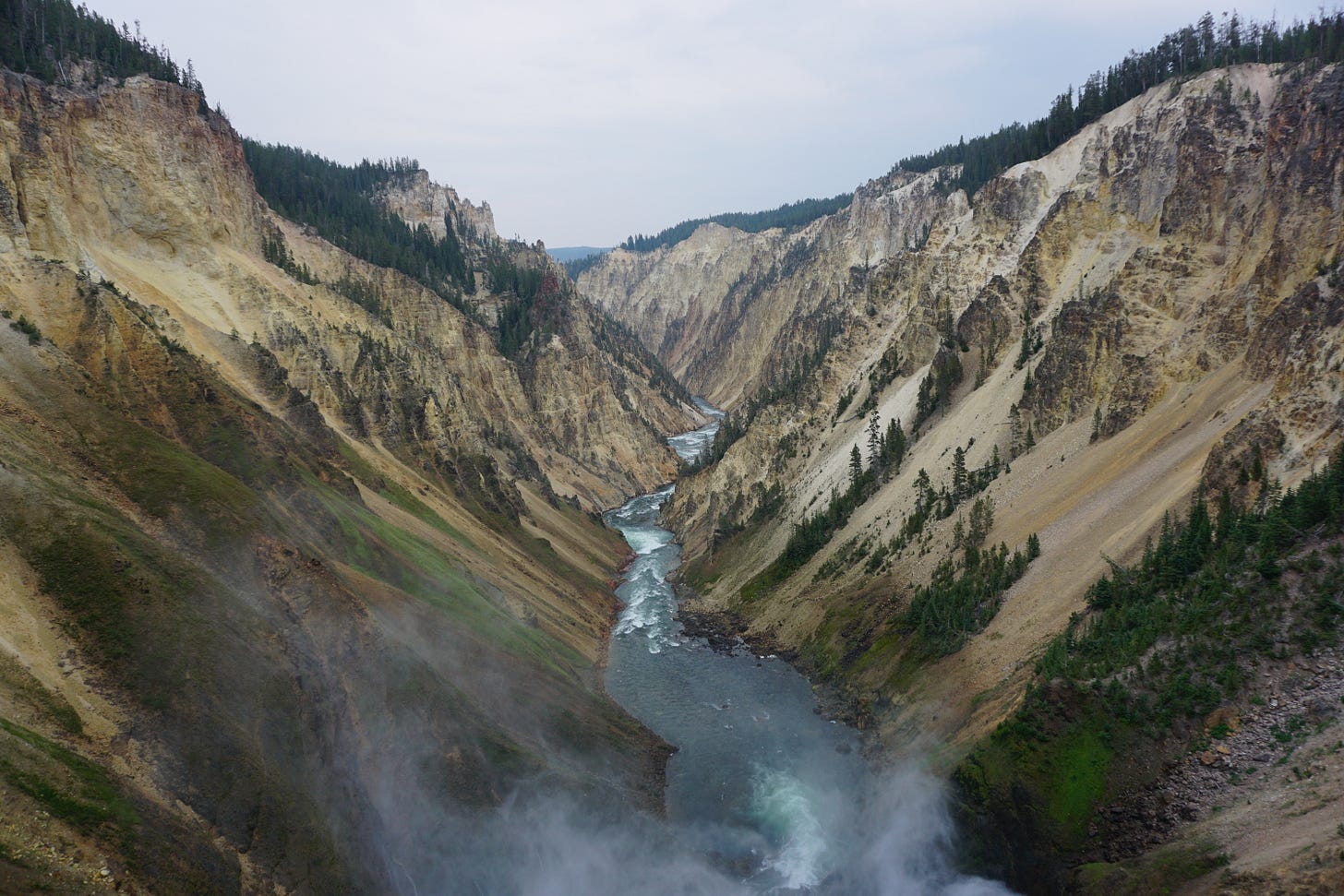National Parks Should Teach Indigenous History
The United States owes much more to the Indigenous peoples whose land it stole and built upon.
Please click the 💗 at the top. Just like modern monetary value, it pays me without costing you anything.
Today’s letter originally appeared in The Progressive Magazine.
I could see the park ranger’s sigh in the air, a cloud of disappointment hanging in the chilly Yellowstone morning. My girlfriend and I had asked Kelly, the only ranger at the socially distanced information stand, where I could learn more about the Native Americans who originally inhabited the park.
“We really don’t have any exhibits,” Kelly said. “It’s quite embarrassing.” All the shivering guide could offer was directions to a geyser part of a local tribe’s origin story and a small placard halfway across Wyoming. “Maybe there’s a history book in the gift shop,” she suggested.
Like many people who’ve adventured into U.S. national parks during the pandemic, we left the trip with fond memories and breathtaking pictures. But there was also a sour aftertaste in knowing Indigenous peoples had been entirely whitewashed out of the country’s oldest national park.
Yellowstone had its busiest October ever last year with more than 360,00 visitors, a 110% increase from 2020. This newfound passion for the outdoors isn’t hard to explain. For all of its faults, the United States is a breathtaking country. But if we’re going to enjoy these sacred landscapes, we have a duty to tell their entire story, not just the parts we want to hear.
In 1877, the Nez Perce tribe fled the U.S. Army on a trail through Yellowstone. The group was scared and starved and eventually captured close to the Canadian border. Witnesses describe their capture as a “battle,” but as we know, slaughter is a better word for what happened when the cavalry encountered Natives. What few survivors remained were sentenced to a life of hardship and poverty on an Oklahoma reservation, where their descendants still struggle today.
Yet this story isn’t told to the thousands who frequent Yellowstone to learn the park’s history. A look at the National Parks Service website illustrates the whitewashing. Of course, this problem extends beyond national parks; history textbooks, for example, often spend only a chapter or two discussing America’s thousands of years of pre-colonial history.

But, as a federal agency, the National Parks Service is uniquely positioned to take the lead on this important issue. Democrats should introduce legislation to fund national parks with the explicit objective of highlighting Indigenous history to parkgoers.
On October 7, President Joe Biden issued proclamations to restore three national monuments that were reduced in size during the Trump administration. He also recognized Columbus Day — which has been designated as a federal holiday since 1968 — as Indigenous Peoples’ Day, becoming the first sitting president to issue this historical correction.
It would be easy for Biden to take these gestures a step forward by pushing for national parks to teach Native history. But performance without substance is worthless. Being frank about our transgressions against Indigenous people is meaningless if we don’t remedy the contemporary impacts.
Today, Indigenous people are subjected to rampant systemic racism. Their schools are underfunded, their medical care is inadequate and reservation unemployment is nearly double the national average.
The United States owes much more to the Indigenous peoples whose land it stole and built upon. And while refusing to be silent about historical misdeeds isn’t enough, education through the National Parks is a good first step.

(If you’d like to help, consider donating to the Native American Rights Fund. NARF fights for Native rights and resources through litigation and legal avenues.)
If you enjoyed what you read today, please share and subscribe. If you didn’t — forget I said anything.
A few things I’m interested in right now:
Why Socialism? by Albert Einstein — an essay by the world’s smartest man explaining his socialist beliefs
Curious about the spoken and unspoken ways branding impacts our lives? Brands Mean a Lot is a weekly commentary covering everything from home office playsets to menthol cigarette bans. Subscribe here.
Check out Let’s Do Our Best - Denver, a campaign I’m working with to combat the cruel anti-homeless 303 initiative on the upcoming Denver ballot. We could use your support!
Foundation (Apple TV) is pretty cool. Worth checking out if you like sci-fi.



